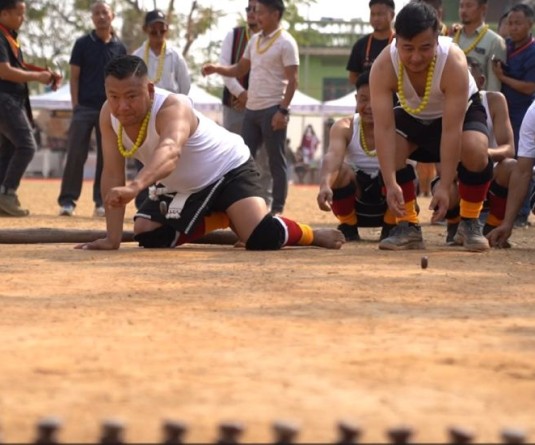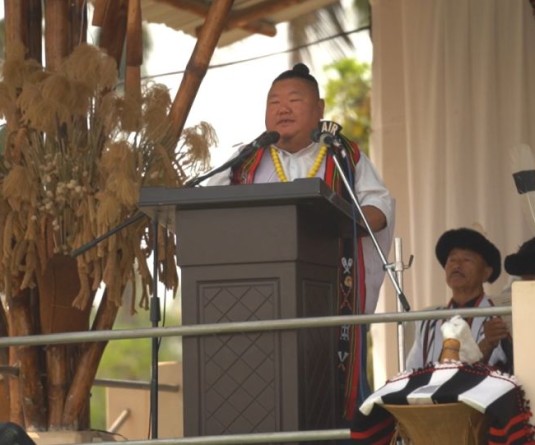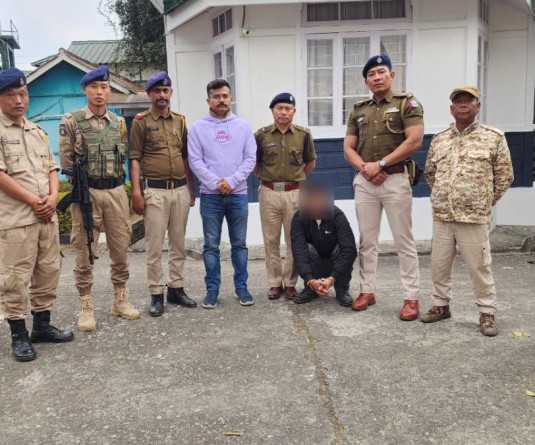
Dimapur, April 17 (MExN): Several organisations, including the Asia Indigenous Peoples Pact (AIPP), the Global Naga Forum (GNF), and the Unrepresented Nations and Peoples Organisation (UNPO), have condemned the reported travel restriction imposed on an NPMHR activist. The NSCN (IM) also decried the action.
Neingulo Krome, Secretary General of the Naga Peoples' Movement for Human Rights (NPMHR), was allegedly denied boarding on a flight to Kathmandu, Nepal, on April 7 by Indian immigration authorities. This reportedly marked the second such incident after a similar event in 2020.
AIPP: The AIPP flayed what it termed as “repeated and unjustified” travel restrictions imposed on the activist without any valid explanation or legal justification.
Citing the April 7 incident, the AIPP said that no explanation was provided and he was bluntly told, “You cannot travel.” In both cases, no official directive was presented, it added.
“In a democratic country like India, no fundamental right — including the right to travel abroad — can be curtailed by the state without due process of law,” the AIPP said, adding it is a fundamental facet of personal liberty and is protected under Article 21 of the Constitution of India.
The AIPP viewed the action as “arbitrary, unjust, and deeply troubling” and expressed its solidarity with Krome and all individuals who are unjustly denied their fundamental rights and freedoms.
It also demanded immediate clarification on the legal grounds for the travel restrictions imposed and ceasing of the “harassment of Indigenous human rights defenders without valid reasons and due process of law.”
The AIPP further called for ensuring accountability for officials responsible for “unlawfully preventing” him.
GNF: The GNF also extended complete solidarity with Krome for his right to travel abroad.
The Indian Supreme Court’s ruling, going back to the 1960s, states that the right to travel abroad is a fundamental right under Article 21 of the Indian Constitution, and the government cannot invalidate the right without a proper procedure established by law, it added.
As per the forum, “You cannot travel” as an explanation for taking away a person’s right to travel is not a valid procedure under Indian or international law and termed it an “arbitrary and illegal exercise of power” that demands outright condemnation by everyone.
The GNF also appealed to the Indian government to immediately remedy this “serious violation” of India’s constitutional guarantee and restore Krome’s right to travel freely without delay.
It also pointed out that India’s “autocratic and illegal” dismissal of Krome’s right to travel abroad is related to the wider restrictions imposed on the Naga people’s right to freedom of movement in their own homeland, which straddles the India-Myanmar border, citing the recent scrapping of the Freedom of Movement Regime.
Nagas are not alone, indigenous peoples in the North-East have faced displacement, dispossession, and cultural erasure under the guise of national integration, it alleged.
At a time when the world is reckoning with historical injustices against indigenous peoples, India’s actions reveal a moral hypocrisy, it added.
Thus, it asserted that democratic civil society organisations like the GNF and others are not going to be silenced and reiterated their call to restore Krome’s right to travel abroad and the right to return to Nagaland.
It also appealed to the international community, including the UNPFII and the UNPO, to hold India accountable and demand that India respect its obligations under the UNDRIP and the UNDHR.
NSCN (IM): As per the NSCN (IM), the travel restrictions imposed on Krome once again “exposed India’s suppressive and oppressive nature targeting the Naga indigenous peoples from going outside India to interact with the other indigenous peoples of Asia.”
The irony, it said, is that India’s claim as the world’s largest democracy falls short when judged by its treatment of all citizens, including indigenous peoples, it said.
It also questioned why India is “so panicked about letting the world know” about the historic August 3, 2015 Framework Agreement signed between the Government of India and the NSCN (IM), saying it was uploaded on world social media platforms as desired by the GoI, after giving the agreement a high political profile that the world should know from the correct perspective.
Thus, the NSCN (IM) argued that for all purposes of establishing meaningful socio-political peace, not only for the Nagas, but for the entire North-East, India should stop the wildest dream of turning the clock back on the Framework Agreement.
It also extended solidarity to Krome and expressed indignation against the action.
UNPO: In a statement, the organisation also condemned the alleged harassment of Krome by Indian authorities and termed it as a “serious infringement on fundamental rights and a reflection of the broader, systemic clampdown on human rights defenders and civil society actors in India.”
It further noted his longstanding engagement with advocacy and nonviolent resistance is well-documented and as NPMHR Secretary General, Krome played a key role in drawing attention to human rights issues affecting the Naga people and indigenous communities more broadly.
Stating that the restriction on the activesit’s movement raises serious concerns about the state of civic space and democratic engagement in India, the UNPO condemned the incident and said that it remained committed to supporting the peaceful aspirations of its members.
It also reiterated the importance of upholding the fundamental rights of all peoples and their representatives.






